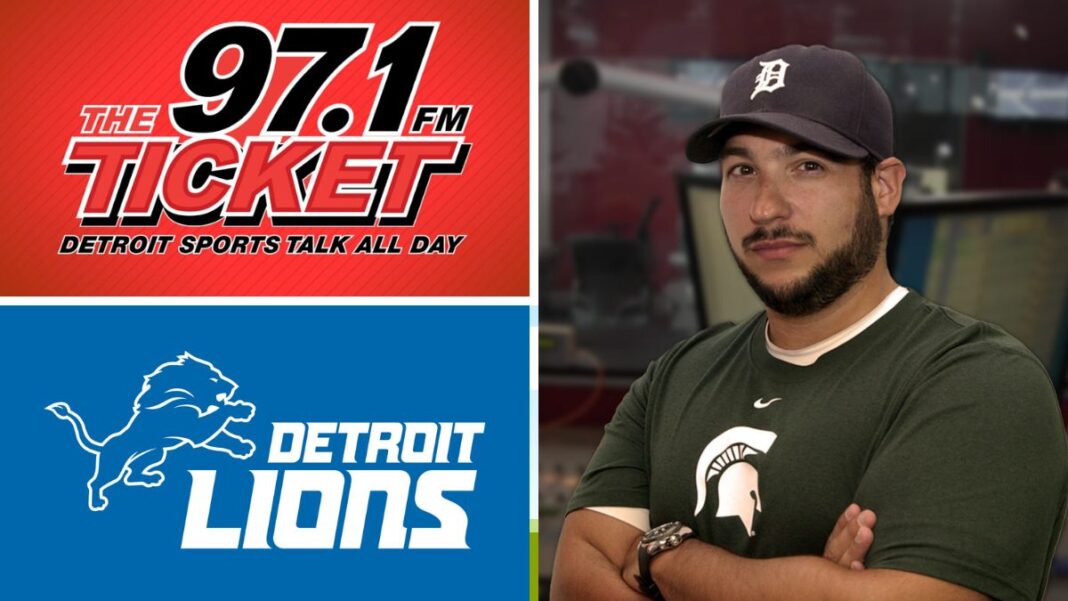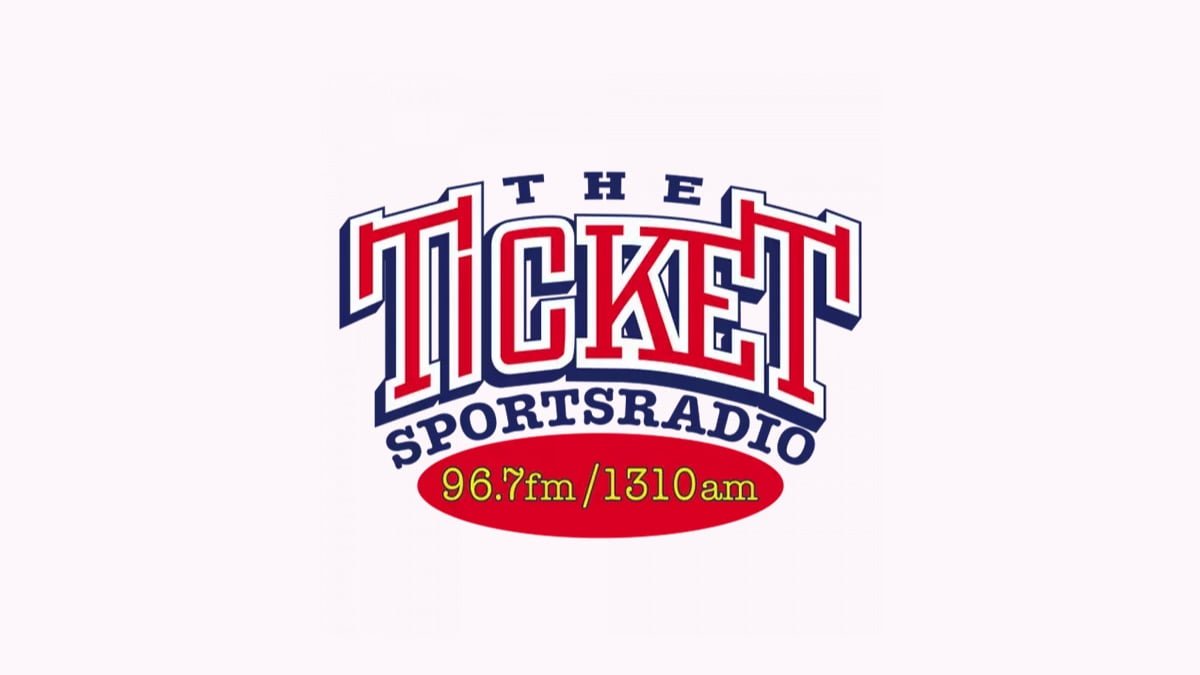Last week in Detroit, CBS Detroit and the Detroit Lions announced an end to their broadcast partnership after eighteen seasons together. The Lions will be moving to WJR next season.
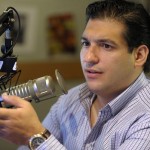 When the decision was announced, the team stated they made the move for business reasons. 97.1 The Ticket afternoon host Mike Valenti said the decision was personal and had more to do with the Lions disdain for him and their desire to control the media’s message.
When the decision was announced, the team stated they made the move for business reasons. 97.1 The Ticket afternoon host Mike Valenti said the decision was personal and had more to do with the Lions disdain for him and their desire to control the media’s message.
CBS Detroit Market Manager Debbie Kenyon released a statement which was in line with Valenti’s assessments. She said “In the end it came down to the integrity of CBS — the refusal to be censored in talking about the team and making honest assessments on the air about this team.”
Valenti and Kenyon’s strong assertions forced the Lions into damage control mode. Elizabeth Parkinson, Senior Vice President of Marketing and Corporate Sponsorships for the Lions offered her position. “I know there’s a bit of narrative out there regarding the notion that, somehow the Lions are practicing some sort of censorship. If we were trying to practice any sort of censorship, we certainly would’ve done it (the switch) much sooner. Anytime our media is either not factual or misrepresenting the content that they’re sharing, those calls are made. Our media team works with all media outlets to correct inaccuracies, and they were working with The Ticket to correct inaccuracies.”
But was the team using its position as a partner to reach out and correct mistakes? Or were they using the association to limit negativity and increase positive conversation?
 Gregg Henson, who now programs in Pittsburgh, and spent 15 years in Detroit as a Programmer and On-Air host, said the Lions issues with the media are very real. In a blog post on his website, Henson added: “It’s been going on for 20 years. When I programmed WDFN in the 90’s, the Lions on many occasions complained to our bosses about the on-air content and we weren’t even the rights holder for the team. At one point, they informed WDFN upper management that if Art Regner and I were terminated they would “consider” granting WDFN the team’s broadcast rights.”
Gregg Henson, who now programs in Pittsburgh, and spent 15 years in Detroit as a Programmer and On-Air host, said the Lions issues with the media are very real. In a blog post on his website, Henson added: “It’s been going on for 20 years. When I programmed WDFN in the 90’s, the Lions on many occasions complained to our bosses about the on-air content and we weren’t even the rights holder for the team. At one point, they informed WDFN upper management that if Art Regner and I were terminated they would “consider” granting WDFN the team’s broadcast rights.”
Henson continued ” The main culprit was Lion’s PR Director Bill Keenist. He attempted to turn hosts against one another and complain that Art (Regner) and I didn’t go to practice. He implored our bosses to “mandate” that we come to practice. Why? So he could bully us into his way of thinking. He even threatened to pull our credentials if we didn’t fall in line.”
When organizations attempt to control the way personalities think and operate, it often ends badly. You don’t develop great relationships that way. I used to tell one individual “if you’re not going to consult me when you’re changing your roster and potentially impacting my station’s ability to generate ratings and revenue, then don’t expect me to afford you the same courtesy”.
Some teams that I’ve worked with have been more than fair in the way they handle business. Much of that starts with the individuals who are in charge. In the Bay Area, I had a great rapport with both football teams because Marc Badain and Will Kiss with the Raiders and Bob Sargent and Bob Lange at the 49ers, are not only first class people, but they respect the media and understand the business. Rarely did my phone ring for something minor.
I’ve also dealt with a few teams who were very sensitive to criticism and wanted on-air talent fired, suspended, or required to attend games and practices. Those teams not only lose the respect of the hosts but they also create a situation where they become the enemy of the Program Director. That’s not positive for anyone involved.
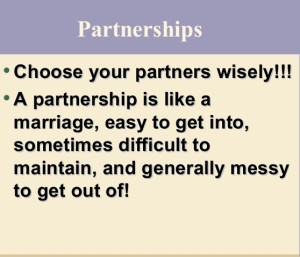 One word that far too often comes into play is ‘partnership’ and it’s a word that means something entirely different to each side. Many teams believe it means the radio station will be positive, avoid difficult subjects, and offer the franchise the benefit of the doubt when bad things happen. Radio stations believe it means the station has the exclusive right to air the team’s games, sell ads during the broadcast, use the franchise’s logos in all marketing materials, and have access to special guests and broadcast opportunities without their weekday content being compromised.
One word that far too often comes into play is ‘partnership’ and it’s a word that means something entirely different to each side. Many teams believe it means the radio station will be positive, avoid difficult subjects, and offer the franchise the benefit of the doubt when bad things happen. Radio stations believe it means the station has the exclusive right to air the team’s games, sell ads during the broadcast, use the franchise’s logos in all marketing materials, and have access to special guests and broadcast opportunities without their weekday content being compromised.
From where I sit, both sides need to understand what they’re signing up for in advance. Rights fees don’t increase when teams create headaches and roadblocks, and stations don’t continue to enjoy the benefit of the association when they’re close minded and using the airwaves to deliver verbal haymakers.
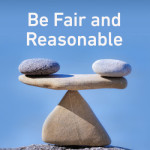 One rule I’ve stressed to my staffs over the years was to be critical of performance, but avoid personal attacks and cheap shots. The result of a game, the performance by an athlete, the poor execution by an organization to provide a positive game experience, those are all fair. Teams may not like hearing it but the facts are the facts. We owe the audience an honest analysis and if the criticisms are directed in that way, I’ll battle for any individual’s ability to speak their mind.
One rule I’ve stressed to my staffs over the years was to be critical of performance, but avoid personal attacks and cheap shots. The result of a game, the performance by an athlete, the poor execution by an organization to provide a positive game experience, those are all fair. Teams may not like hearing it but the facts are the facts. We owe the audience an honest analysis and if the criticisms are directed in that way, I’ll battle for any individual’s ability to speak their mind.
On the other hand, it’s tougher to defend a talent when they step outside the lines and get personal. Whether the team gave you good seats to a game, the best setup at training camp, the interview you wanted, or the best spot in the media press box shouldn’t influence how you speak about their performance. You’re privileged to have access to many of these things and if you don’t get your way, that shouldn’t restrict your ability to be fair. If you want to call the owner a drunk, or suggest that a front office executive has photos of the owner to remain employed, be prepared to lose that fight, and in some cases your job.
 Where this becomes interesting is when you’re forced to choose between play by play and your weekday programming. While I’m sure money was a big factor in the conversation in Detroit, I do believe that the integrity of the radio station came into play. I respect Debbie Kenyon and CBS for standing by Mike Valenti. I’m not sure how many others would’ve done the same.
Where this becomes interesting is when you’re forced to choose between play by play and your weekday programming. While I’m sure money was a big factor in the conversation in Detroit, I do believe that the integrity of the radio station came into play. I respect Debbie Kenyon and CBS for standing by Mike Valenti. I’m not sure how many others would’ve done the same.
Play by Play rights fees are high and often cause stations to lose money. But they also deliver audience, attract good sales people, and usually help a station enjoy great ratings success. When a team leaves a radio station, good people usually follow, and ratings aren’t far behind. Whether that will or won’t happen in Detroit remains to be seen.
In looking across the country at the top 25 markets, the ratings leader in each city usually has a play by play partnership with a popular local team. Less than 5 of the top 25 cities had a station winning the local competition without an NFL, MLB, NBA or NHL franchise on their airwaves. Those who carry local NFL/MLB teams perform even higher than those with NBA/NHL rights.
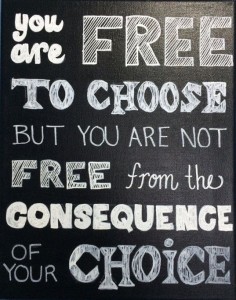 As necessary as it may be for sports stations to offer dynamic air talent M-F 6a-7p, numerous radio operators believe that they stand a better chance to drive higher ratings and revenue with play by play on their airwaves.
As necessary as it may be for sports stations to offer dynamic air talent M-F 6a-7p, numerous radio operators believe that they stand a better chance to drive higher ratings and revenue with play by play on their airwaves.
But what happens when you’re forced to choose between the two? Can you win without a popular local team’s games on your radio station? Can you afford to lose a dominant personality and replace them with lesser talent simply to keep a team on your airwaves?
I was curious of how other programmers felt about the importance of play by play and what their preference would be if they had to choose. Given the sensitive nature of the discussion, I’ve elected to keep the identities of the 5 programmers I spoke with private. Although I’d love to believe that a candid conversation like this wouldn’t lead to additional headaches, I’m not certain it wouldn’t.
How important is play by play to your ratings success?
PD1: Play-by-play of a winning team is the greatest marketing a station can get. It brings people to your station that you’d never otherwise have sample your product. When you combine that with a brand which is better than the competition, but not the heritage station in the market, it can be very valuable to success.
PD2: Play by play is important because there is a big cume available for stations to use to send their messages to listeners. This is important for directing the audience back into your weekday programming.
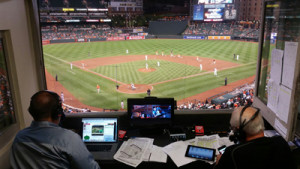 PD3: Very! Though the caveat is what sport, what team(s), and most importantly – relevance. The NFL is king. I could run a Jacksonville-Buffalo game on a Sunday morning and get a ton more meters than other sports’ play-by-play. With everything else, it depends on the specific significance of the event. As our local teams progress thru their respective seasons, we see either ascending or descending interest based on how they perform.
PD3: Very! Though the caveat is what sport, what team(s), and most importantly – relevance. The NFL is king. I could run a Jacksonville-Buffalo game on a Sunday morning and get a ton more meters than other sports’ play-by-play. With everything else, it depends on the specific significance of the event. As our local teams progress thru their respective seasons, we see either ascending or descending interest based on how they perform.
PD4: It’s very important but it’s not the play by play as much as it is using the game broadcast to get folks to come back the day(s) after to help with cume for the M-F shows.
PD5: Ratings success depends largely on the success of the team. I have been PD of a station with Play By Play of a team that does not attract a large audience and therefore the pxp is a detriment to the success of the station. It’s 3 hours where the station could be talking about other teams in the market or content that has greater local appeal. If the team is in second or third place or even worse in terms of standings or importance, it hurts.
How important is play by play to your station’s revenue success?
PD1: It helps. As much as anything, it opens doors with advertisers who may not be familiar with us. When you’re the flagship of a major professional team, very rarely do you have sales calls go unanswered. We’re not allowed to sell spots in our “direct play-by-play,” the game, coach’s show, etc., but what the play-by-play allows us to do is build shoulder programming around it and position ourselves as the flagship.
PD2: Enormous. It’s not just the on-air commercials that spike rates and revenue. It’s the relationship and tickets that come with the partnership. My sales manager once said, “having that relationship allows you to say “please” to potential new clients and “thank you” to loyal clients.”
 PD3: Revenue is a big part of play by play deals. Making a buck is tough these days especially with expensive rights deals. For many clients, the emotional attachment to a certain team is the deciding factor in spending money on the station. Having it available helps bring clients in the door, with the goal being to make them a larger part of the station down the road, whether that’s through buying features associated to the team, sportscasts or anything else programming related.
PD3: Revenue is a big part of play by play deals. Making a buck is tough these days especially with expensive rights deals. For many clients, the emotional attachment to a certain team is the deciding factor in spending money on the station. Having it available helps bring clients in the door, with the goal being to make them a larger part of the station down the road, whether that’s through buying features associated to the team, sportscasts or anything else programming related.
PD4: It is very important to our revenue. We put a lot of effort into selling our local play by play and when we have success selling it, it lifts all aspects of revenue for the station. We tie together our play by play sales and station sales so when play by play is hot, it carries over to the spot sales and NTR (non-traditional revenue) for the sports talk programming.
PD5: It depends on the specific play-by-play partner and relationship. Most teams/franchises are taking their broadcasts in-house and controlling all or most of the inventory, so the value in these affiliations might be in ancillary programming – coach’s shows, pre/post game, sponsored features/segments suited towards team coverage. The ratings help you might get from play by play cume increases, can boost your weekday numbers which helps your sales department when it comes to selling spots and other station items.
Considering the financial commitment that is required to secure a local team’s broadcast rights, are they worth it?
PD1: If it’s an “A” property – MLB, NBA, NFL, major college, I think it is worth it. It can be a tremendous hassle (I’ve seen it in every market I’ve worked) but from a branding and credibility standpoint, whether you’re an established station or a startup – it has undeniable benefits that couldn’t be attained any other way.
PD2: Having worked in several markets where team broadcast rights fees are a big part of the stations expense line, it really comes down to the bottom line and how much the station/company is willing to partner with the team. That “partnership” and the willingness to work together in the “radio marriage” is essential. Does the team have a list of restricted categories for selling? Are they willing to work and push dollars from their major sponsors to you? Is the station willing to introduce their clients to the sports property? It is one of the biggest commitments and all of these items must be presented before the marriage is set – no surprises. Surprises are what lead to a bitter relationship.
 PD3: This depends on the sport, franchise and city. For example, if you went to Minneapolis, I’m sure it’d be worth it to be the flagship for the Minnesota Vikings, but probably not as much to carry the Minnesota Timberwolves. Each market has a team or two that exceeds the others in value and interest.
PD3: This depends on the sport, franchise and city. For example, if you went to Minneapolis, I’m sure it’d be worth it to be the flagship for the Minnesota Vikings, but probably not as much to carry the Minnesota Timberwolves. Each market has a team or two that exceeds the others in value and interest.
PD4: In today’s radio business climate, I think it’s important to enter into these agreements with the idea of making money or at least breaking even. The problem with losing money on radio rights deals is that it ends up impacting your sports talk lineup. Usually when a station loses money on the rights, they’re forced to trim staff.
PD5: It depends on the market and team. In my city, if you have football it’s worth it. If you were in St. Louis and you had baseball, it’s worth it. Football rules in most markets, but in some the others (baseball and basketball) do and don’t make business sense.
What chance does a station have of winning a ratings & revenue battle in a local market if it doesn’t have play by play and the competitor does?
PD1: Year round it’s all about your station’s personalities. Those who have polarizing talent with an ability to “say something” always keep a brand from being dependent on the performance of a local team. Owning NFL coverage in a city can make it seem to listeners that your station gives the “best” coverage without owning the rights.
PD2: It depends on the market and teams. I think if you do some research on top rated stations in NFL cities you will see the majority have the rights to the NFL team. Then the question is, what came first? Did the team go to the top station and the top station got better? Or did the team make that station the top station?
 PD3: Creative programming wins. Having the ability to sell special features, shows, covering the team with reporters, segments and special guests can give the station the upper hand in being the station of record for the sports property. If the play by play for a popular franchise is not available in the market, get over it and start thinking of ways you can still cover the team and win.
PD3: Creative programming wins. Having the ability to sell special features, shows, covering the team with reporters, segments and special guests can give the station the upper hand in being the station of record for the sports property. If the play by play for a popular franchise is not available in the market, get over it and start thinking of ways you can still cover the team and win.
PD4: It is hard to win the 12+ number in the ratings world if you don’t have play by play but you can win the 25-54 battle 6a-7pm if you have great personalities, and that demo is key for most sports stations. As for revenue, not having play by play might make winning the overall billing battle more difficult but you can still be profitable as a radio station without play by play.
PD5: It’s very possible to win the ratings without play-by-play. Some stations have the luxury of being the hotter brand than the team. In other cases, the team is a hotter brand than the station. A station needs to see where they stand in that assessment when analyzing their play-by-play options. Not every station needs play-by-play to drive their success. But even on stronger brands, it’s nice programming to have on nights and weekends, where it doesn’t interfere with what is really driving the station, for both ratings and revenue.
How do you handle situations that arise when teams wish to influence content on your airwaves?
PD1: I meet for lunch with front office personnel and attend games regularly. Relationships are key and I believe in making myself available as a sounding board, not my on-air talent. I have never had a problem with a team because I explain up front that we will criticize but be fair and I encourage my hosts to show up in the locker room and at practices and games. That helps build the relationship.
PD2: There is one guarantee when becoming a flagship, the team will have “concerns” with the on-air commentary and voice their opinions to management about them. This has taken place in every single team-station relationship I’ve been a part of. Being accessible to discuss issues is key, and each situation is dealt with on a case by case basis.
 PD3: Hopefully at the point of agreeing to the contract, we’ve made it clear who we are and what we’re about. My direction to my talent is that they (a) go to the games…that’s why I get them credentialed (b) give your opinions based on what you saw and experienced, not always on what you read from someone else. That way if/when a team has an issue with something we’ve said, we can say we’ve done so from a standpoint of coverage and credibility, not just being salacious and/or outspoken. When you’re at the games and the PR staffs see you there covering the team on a night in/night out basis, they’re less likely to question your motives when you’re critical.
PD3: Hopefully at the point of agreeing to the contract, we’ve made it clear who we are and what we’re about. My direction to my talent is that they (a) go to the games…that’s why I get them credentialed (b) give your opinions based on what you saw and experienced, not always on what you read from someone else. That way if/when a team has an issue with something we’ve said, we can say we’ve done so from a standpoint of coverage and credibility, not just being salacious and/or outspoken. When you’re at the games and the PR staffs see you there covering the team on a night in/night out basis, they’re less likely to question your motives when you’re critical.
PD4: The number one rule is to not make it personal. When you do that, it is harder to defend. If you are critical of the team because they are playing bad, no problem, but taking low blows at people in the spirit of being mean and hurtful is just not smart. So, if there is a complaint, I usually just try to first get context by listening back to the content, and then try to make it clear that this is an opinion based business and the opinions being sharing are based on what’s happening on the field. If the product is better, the talk will be more positive. If the product is not good, that talk is not going to be positive. The key as a programmer is you have to serve as a buffer so that you protect your talent’s ability to speak their mind as much as possible. You have to be willing to take the calls, talk through the difficult conversations, hear the complaints and stay calm and focused. Many times the situation will dissipate.
PD5: Welcome to business. Generally, we give our partners the benefit of the doubt, and we try to keep critiques between the lines. Not all stations do or need to operate that way but that’s how we value our relationships with teams, weekly guests, networks, sponsors, etc.
If you had to choose between keeping your play by play rights and your #1 personality, what would you choose? Why?
PD1: Personality by far. That is what makes talk radio unique and it carries your programming year round. It’s hard to believe you would ever have to consider choosing between both.
PD2: It would depend on the talent. If my #1 personality was king of the city and entrenched in the market for 10+ years then you stick with the talent. If the #1 talent is doing well but not crushing/overshadowing every other show, then you have to look for somebody else while trying to work with the talent/team in order to keep the relationship with the team. Each circumstance is different.
 PD3: I would always choose my #1 personality. That said, this is a business and it’s a much more complex question. Many programmers know that you can back your talent all you want but if you don’t have support of your management team than it won’t matter. I know Mike Valenti is an incredible talent who can be abrasive and come close to crossing the line, but the key in that situation turning out the way it did was a result of his GM having his back.
PD3: I would always choose my #1 personality. That said, this is a business and it’s a much more complex question. Many programmers know that you can back your talent all you want but if you don’t have support of your management team than it won’t matter. I know Mike Valenti is an incredible talent who can be abrasive and come close to crossing the line, but the key in that situation turning out the way it did was a result of his GM having his back.
PD4: I’d rather keep my best show than the rights to a local team. But if a station doesn’t have a singular, dominant personality with major market appeal, then they’d probably lean towards sticking with their play by play rights.
PD5: You keep your #1 personality, hands down. Play-by-play is fleeting (one year they might be great, the next they might suck) and seasonal. My personalities are on year-round. Personalities can help make the radio station more money thru solid ratings, promotional opportunities, endorsements & appearances, plus they’re involved in our community outreach. No question in my mind about this one.

Jason Barrett is the President and Founder of Barrett Media since the company was created in September 2015. Prior to its arrival, JB served as a sports radio programmer, launching brands such as 95.7 The Game in San Francisco, and 101 ESPN in St. Louis. He also spent time programming SportsTalk 950 in Philadelphia, 590 The Fan KFNS in St. Louis, and ESPN 1340/1390 in Poughkeepsie, NY. Jason also worked on-air and behind the scenes in local radio at 101.5 WPDH, WTBQ 1110AM, and WPYX 106.5. He also spent two years on the national stage, producing radio shows for ESPN Radio in Bristol, CT. Among them included the Dan Patrick Show, and GameNight.
You can find JB on Twitter @SportsRadioPD. He’s also reachable by email at Jason@BarrettMedia.com.






